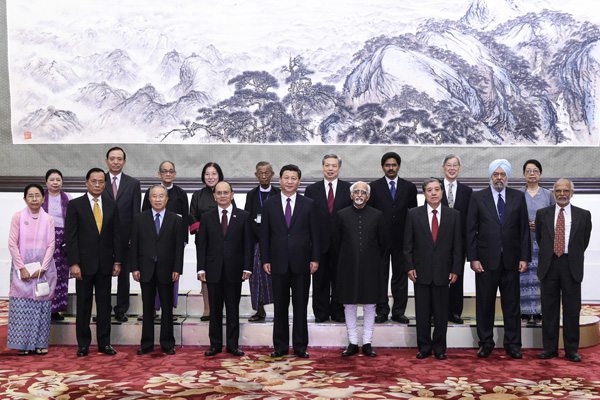| Diplomatic Wisdom | | Though unfamiliar to most Westerners, the Five Principles of Peaceful Coexistence are highly acclaimed diplomatic tenets in China and many other developing countries. The principles are reaffirmed at a recent conference commemorating their 60th anniversary | | more | |
|
 | | Lasting Peace | | Although China is demonstrating its peaceful approach to international affairs, it has always been an easy target for critics in the Western media. Any unharmonious interaction between China and its neighbors is likely to be exaggerated by the outside world as China's wrongdoing.
Observers call it undergoing the "growing pains" of a giant. Regardless, China is trying to gain understanding with sincerity. | | Full Story | |
|
|
|
The Five Principles of Peaceful Coexistence are an important international relations tenet created by China, India, and Myanmar to include mutual respect for sovereignty and territorial integrity, mutual non-aggression, non-interference in each other's internal affairs, equality and mutual benefit, and peaceful coexistence
December 1953 First put forward by then Chinese Premier Zhou Enlai (1898-1976) at a meeting with the Indian delegation for negotiations on bilateral relations in China's Tibet region.
April 1954 Incorporated into the Agreement on Trade and Intercourse Between the Tibet Region of China and India.
June 1954 China, India and Myanmar (then known as Burma) issued joint statements, affirming the Five Principles as guiding principles for China-India and China-Burma relations.. | | more | | |
|
